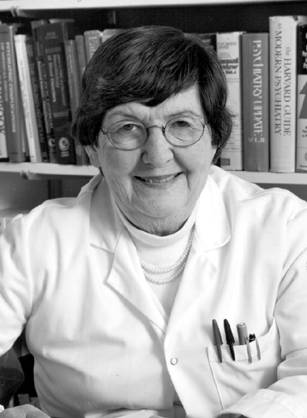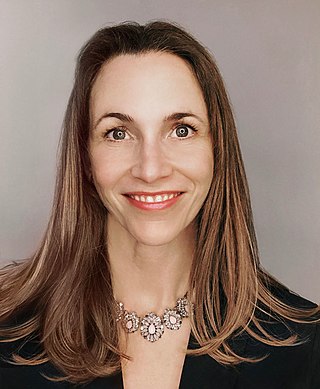
Chandler Park is an American physician, medical journalist, and clinical researcher. In June 2021, his cancer research was published in prominent medical journals including the New England Journal of Medicine and Journal of Clinical Oncology. Park also contributes regularly as an expert physician for popular newspapers and magazines such as Newsweek, Reader's Digest, U.S. News & World Report, The Exponent-Telegram, College of St. Scholastica, and Medscape and writes medical news for Doximity.

Personalized medicine, also referred to as precision medicine, is a medical model that separates people into different groups—with medical decisions, practices, interventions and/or products being tailored to the individual patient based on their predicted response or risk of disease. The terms personalized medicine, precision medicine, stratified medicine and P4 medicine are used interchangeably to describe this concept, though some authors and organizations differentiate between these expressions based on particular nuances. P4 is short for "predictive, preventive, personalized and participatory".
Nicholas J. Vogelzang was a medical oncologist with Comprehensive Cancer Centers of Nevada (CCCN). He serves as medical director of the Research Executive Committee and Associate Chair of the Developmental Therapeutics and Genitourinary Committees for US Oncology Research. His research interests include clinical trials for genitourinary malignancies and mesothelioma.

Josep Baselga i Torres, known in Spanish as José Baselga, was a Spanish medical oncologist and researcher focused on the development of novel molecular targeted agents, with a special emphasis in breast cancer. Through his career he was associated with the Memorial Sloan Kettering Cancer Center, Vall d'Hebron Institute of Oncology, and the Massachusetts General Hospital in their hematology and oncology divisions. He led the development of the breast cancer treatment Herceptin, a monoclonal antibody, that targets the HER2 protein, which is impacted in aggressive breast cancers.

The Journal of Clinical Oncology is a peer-reviewed medical journal published 3 times a month by the Lippincott Williams & Wilkins. It covers research on all aspects of clinical oncology. The journal was established in 1983 and the editor-in-chief is Jonathan W. Friedberg. JCO's Impact Factor is 45.3 as reported by Clarivate in its 2022 Journal Citation Reports.
Harry F. Bisel, M.D. (1918–1994) was an American oncologist. With Fred Ansfield, Herman Freckman, Arnoldus Goudsmit, Robert Talley, William Wilson, and Jane Wright, was one of the founding members of the American Society of Clinical Oncology (ASCO). This group of pioneering doctors, through the formation of ASCO, is largely credited with the development of modern American clinical oncology. In 1964, Bisel was elected the first president of ASCO. He was active in the American Cancer Society and was a consultant to the National Cancer Institute. Bisel was a founding member of the American Society of Preventive Oncology as well as the American Association for Cancer Education.
Geriatric oncology is a branch of medicine that is concerned with the diagnosis and treatment of cancer in the elderly, usually defined as aged 65 and older. This fairly young but increasingly important subspecialty incorporates the special needs of the elderly into the treatment of cancer.

Oncology is a branch of medicine that deals with the study, treatment, diagnosis, and prevention of cancer. A medical professional who practices oncology is an oncologist. The name's etymological origin is the Greek word ὄγκος (ónkos), meaning "tumor", "volume" or "mass". Oncology is concerned with:
JCO Oncology Practice is a monthly peer-reviewed medical journal covering the mechanics of oncology care. It was established in 2005 and is published by the American Society of Clinical Oncology. The editor-in-chief is John V. Cox. The editor-in-chief designate is Jeffrey Peppercorn.
William K. Oh, is an American medical oncologist, academic and industry leader and expert in the management of genitourinary malignancies, including prostate, renal, bladder and testicular cancers.
High-dose chemotherapy and bone marrow transplant (HDC/BMT), also high-dose chemotherapy with autologous bone marrow transplant, was an ineffective treatment regimen for metastatic breast cancer, and later high-risk breast cancer, that was considered promising during the 1980s and 1990s. With an overall idea that more is better, this process involved taking cells from the person's bone marrow to store in a lab, then to give such high doses of chemotherapy drugs that the remaining bone marrow was destroyed, and then to inject the cells taken earlier back into the body as replacement. It was ultimately determined to be no more effective than normal treatment, and to have significantly higher side effects, including treatment-related death.

Jimmie Coker Holland was a founder of the field of psycho-oncology. In 1977, she worked with two colleagues to establish a full-time psychiatric service at Memorial Sloan Kettering Cancer Center. The program was one of the first of its kind in cancer treatment, and trained its psychologists to specialize in issues specific to people with cancer.

Sandra M. Swain is an American oncologist, breast cancer specialist and clinical translational researcher. She is currently a professor of Medicine at the Georgetown University School of Medicine and the Associate Dean for Research Development at Georgetown University Medical Center (GUMC) and MedStar Health as well as an adjunct professor of Medicine at the F. Edward Hébert School of Medicine of the Uniformed Services University of Health Sciences. She is also a past President of the American Society of Clinical Oncology (ASCO), serving from 2012 through 2013.

Tatiana Michelle Prowell is an American medical oncologist specializing in breast cancer. She is an Associate Professor of Oncology at Johns Hopkins School of Medicine and Breast Cancer Scientific Liaison at the U.S. Food & Drug Administration.
Lori Jo Pierce is an American radiation oncologist and 57th President of the American Society of Clinical Oncology. She is a Full Professor and Vice Provost for Academic and Faculty Affairs at the University of Michigan. Her research focuses on the use of radiotherapy in the multi-modality treatment of breast cancer, with emphasis on intensity modulated radiotherapy in node positive breast cancer, the use of radiosensitizing agents, and the outcomes of women treated with radiation for breast cancer who are carriers of a BRCA1/2 breast cancer susceptibility gene.
Stephanie Lynn Schutt Graff is an American breast medical oncologist. She is the Director of Breast Oncology at the Lifespan Cancer Institute and an Assistant Professor of Medicine at Alpert Medical School. Previously she was the Director of both the Breast Program and Clinical Research at Sarah Cannon Research Institute at HCA Midwest Health at Sarah Cannon Research Institute and Associate Director of the Breast Cancer Research Program at Sarah Cannon Research Institute.
Beth Young Karlan is an American gynecologic oncologist. In 2008, she was named editor-in-chief of the medical journals Gynecologic Oncology and Gynecologic Oncology Reports. In 2012, Karlan was appointed by the White House to serve on the National Cancer Advisory Board, and in 2015, she was elected to the National Academy of Medicine.
A Molecular Tumor Board (MTB) is a dedicated group of medical experts to evaluate hard-to-treat cancers and provide a personalized healthcare opportunity. It has also been called a Sequencing Tumor Board and it is characterized by the in-depth application of molecular analysis for a single patient. Molecular Tumor Boards are considered most useful for cancer types for which therapies are not effective, for example, in the case of heterogeneous sarcomas. The boards are composed by clinical oncologists and pathologists alongside other specialists, which vary from institution to institution, but might include geneticists, bioinformaticians and molecular biologists. MTBs are considered to improve clinical outcomes for patients with tumors with unique molecular profiles.
Patrick J. Loehrer is an American oncologist who is Indiana University Distinguished Professor, Joseph W. and Jackie J. Cusick Professor in Oncology, Professor of medicine, Indiana University School of Medicine; Director emeritus, Indiana University Melvin and Bren Simon Comprehensive Cancer Center.







